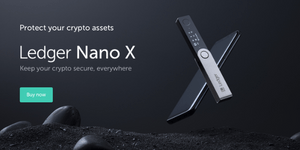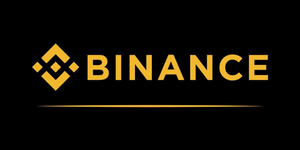-
Bitcoin Price: $102,044
2.17%
-
All-Time High: $108,786.00
5.69%
- 24h High / 24h Low: $104,977 / $101,225
-
Market Cap: $2,022,408,963,313
2.13%
- 24h Volume: $66,104,636,570
Frequently Asked Questions
Find simple explained answers to recurring questions and myths about Bitcoin, Blockchain and Cryptocurrencies in our Bitcoin FAQ.
What is Bitcoin?
Bitcoin is a revolutionary new payment network and a new form of electronic money. It’s a digital currency which enables secure and instant financial transactions at dramatically low costs between any two individuals anywhere on the globe.
Bitcoin allows its users to transact directly, peer-to-peer, without an intermediary and can be used just like other currencies or assets in exchange for goods or services.
What are Bitcoins?
Bitcoins are the unit of currency of the Bitcoin payment network. The most used abbreviations for Bitcoin are BTC or XBT.
In contrast to most FIAT currencies, Bitcoin is easily divisible. For an overview of the various Bitcoin denominations, please see below.
Who created Bitcoin?
Bitcoin is the very first cryptocurrency and was founded by an anonymous person or group of individuals, named Satoshi Nakamoto. To this day, Satoshi Nakamoto’s identity and nationality are still unknown.
Who controls Bitcoin?
Bitcoin is decentralized. Unlike traditional currencies like the Euro or the US-Dollar, there is no government, institution or other central third party that oversees the issuance and circulation of Bitcoin.
That means Bitcoin cannot be censored, manipulated or controlled by a single centralised institution or government. Also, if you store your Bitcoin in a digital, non-custodial wallet, no institution, government or third party is able to lock you out of your funds.
How can I get Bitcoin?
Nowadays, there are many different ways to acquire Bitcoin:
- You can accept Bitcoin as payment for your goods or services.
- You can buy Bitcoin on cryptocurrency exchanges, like Binance, Kraken or Coinbase.
- You can buy Bitcoin using a local Bitcoin ATM. Today, there are over 20,000 Bitcoin ATMs worldwide.
- You can search for someone who exchanges cash for Bitcoin at a face-to-face meeting. The Bitcointalk forum is a great place to get in touch with other Bitcoin enthusiasts.
- You can earn Bitcoin by solo mining or participating in a Bitcoin mining pool.
What is Bitcoin mining?
Bitcoin mining is the process by which new Bitcoins are introduced to the system. By spending compuation power Bitcoin miners are securing the network and processing transactions.
New transaction records are constantly added to a public ledger of previous Bitcoin transactions. The ledger of previous transactions is referred to as the Blockchain because it is a continuous chain of new blocks. The blockchain is used to confirm to the rest of the network that Bitcoin transactions have taken place and are legitimate.
The process of solving complex computational puzzles is referred to as “mining” as an analogy to mining other commodities like gold or silver.
How can I look up a Bitcoin transaction?
You can look up any Bitcoin transaction by using a Bitcoin Blockchain Explorer.
A blockchain explorer is a tool for viewing and querying blocks on the blockchain. It works like a web browser (e.g. Firefox or Google Chrome) but is connected to the blockchain rather than the internet.
The main function of a Bitcoin block explorer is to enable anyone with a connection to the internet to track all transactions taking place on the blockchain in real time.
Is there a Bitcoin Community?
If you’re new to Bitcoin there are several ways to get in touch with other Bitcoin enthusiasts:
- Bitcointalk.org is a message board founded by Satoshi Nakamoto on November 22, 2009. Bitcointalk has more than two million registered users.
There are several other communities:
How divisible is Bitcoin?
Bitcoin can be divided down to eight (8) decimal places. Accordingly 0.00000001 BTC is the smallest amount that can be sent in a Bitcoin transaction. This amount is called Satoshi and is named after the founder of Bitcoin Satoshi Nakamoto. The abbreviation for Satoshi is SAT.
Are there Bitcoin denominations?
These are the most common Bitcoin denominations:
| Denomination | Abbreviation | Full Name | Bitcoin Value |
| Satoshi | SAT | Satoshi | 0.00000001 BTC |
| Microbit | µBTC (uBTC) | Bit | 0.000001 BTC |
| Millibit | mBTC | Millibitcoin | 0.001 BTC |
| Centibit | cBTC | Centibitcoin | 0.01 BTC |
| Decibit | dBTC | Decibitcoin | 0.1 BTC |
| Bitcoin | BTC | Bitcoin | 1 BTC |
How long will it take to generate all Bitcoins?
The last block which will generate Bitcoins will be block #6,929,999. The expected date of this block is around the year 2140.
When the generation of new coins ends in the distant future, the transaction fees will likely continue to make the creation of new blocks very profitable. That way the transaction fees will maintain the use of Bitcoin and the Bitcoin network.
What happens if Bitcoin are sent to a wrong address?
Unfortunately, if you send your Bitcoins to a wrong address or lose your seed phrase or private key to your wallet, there is no way to recover your Bitcoins.
Accordingly, it is extremely important that you keep your passwords and seed phrases for your wallets safe. Additionally, when sending Bitcoin, always verify that you have selected the correct receiving address.
Although there are no exact figures, recent estimates put the number of lost Bitcoins at over five million.
How is Bitcoin different from FIAT currencies?
Unlike traditional currencies such as the Euro or the US Dollar (so–called FIAT currencies), cryptocurrencies do not exist physically in the form of coins or banknotes, but purely digitally.
In addition, cryptocurrencies can be sent and received around the globe easily and at very low cost via a cryptocurrency wallet. In contrast to FIAT currencies, there is no central third party such as governments, institutions or central banks that oversees the issuance of cryptocurrencies.
Moreover, unlike monetary currencies, the supply of many cryptocurrencies such as Bitcoin or Litecoin is often limited.
What is Blockchain?
The term Blockchain typically describes a decentralized, transparent, public ledger that allows units of value to be transferred securely using public key encryption and proof-of-work technology.
Broadly speaking, a blockchain is a database shared across a network of computers. In this database, each block in the chain contains a certain number of transactions and whenever a new transaction is performed on the blockchain, a record of this transaction is added to the ledger of each participant in the network.
This decentralised database, which is managed by various network participants, is known as Distributed Ledger Technology (DLT).
By using decentralised consensus to maintain the network, blockchain technology has a huge advantage over traditional digital databases. It cannot be censored, manipulated or controlled by a single centralised network participant, institution or government.
What are Cryptocurrencies?
Cryptocurrencies (or crypto) are digital assets secured by cryptography. Cryptocurrencies are based on the so-called distributed ledger technology, whereby all transactions are stored on the blockchain.
Like traditional FIAT currencies, cryptocurrencies also act as a medium of exchange, however with no intermediaries (e.g. banks) monitoring the transactions.
In addition to Bitcoin, which is considered the first cryptocurrency, there are over 10,000 different cryptocurrencies today. These cryptocurrencies are called altcoins (alternative coins).
How to store Cryptocurrencies?
Your cryptocurrency holdings can be managed, sent and received via cryptocurrency wallets. There are different types of wallets with different levels of security such as desktop wallets, mobile wallets, hardware wallets or paper wallets.
Wallets do not actually store cryptocurrencies per se, but the private keys to access the digital assets on the blockchain.
For this reason, it is critically important that you keep your private key and seed phrase safe and never share them with anyone. Once someone gets hold of your private key, that person will also be able to access your crypto assets stored in your wallet!
For this reason, a well-known saying in the crypto world is: Not your keys, not your coins!
What is an Altcoin?
All cryptocurrencies, coins or tokens other than Bitcoin are referred to as altcoins. The term altcoin is short for alternative coin. It alludes to the fact that Bitcoin emerged as the first or original cryptocurrency in 2009 and subsequent cryptocurrencies are classified as “alternative” or “alternate” coins.
A prominent example of an altcoin is the second largest cryptocurrency Ethereum.
What is a Cryptocurrency airdrop?
An airdrop is a marketing tool for distributing cryptocurrencies to the public in order to promote new blockchain projects. Most of the time, recipients do not have to fulfill any specific tasks to receive an airdrop, sometimes the holding of a certain number of coins or tokens is a prerequisite to qualify for an airdrop.
Unlike an ICO (“Initial Coin Offering”), digital assets are distributed for free in an airdrop and there is no purchase involved.
What is Decentralized Finance (DeFi)?
The acronym DeFi stands for “Decentralized Finance” and describes new forms of financial protocols that are based on smart contracts and do not require a central intermediary. In contrast, in traditional financial markets, central instances such as banks are indispensable for financial transactions and services.
Recently, many new DeFi projects such as decentralized exchanges, stablecoins or peer-to-peer lending services have emerged in the crypto sector, mostly based on the Ethereum blockchain.
What is a Non-fungible Token (NFT)?
NFT stands for “Non-Fungible Token” and refers to a cryptographic token on the blockchain that cannot be replicated or replaced. NFTs act as certificates for the authenticity and uniqueness of a digital asset and give the owner proof of ownership.
Especially in the art and music scene, digital works have recently been offered as Non-Fungible-Tokens. In March 2021, Twitter CEO Jack Dorsey’s first tweet was auctioned off as a NFT for $2,9 million.
Didn't find the answer you were looking for?
Feel free to check our cryptocurrency market data or our comprehensive blockchain glossary.









